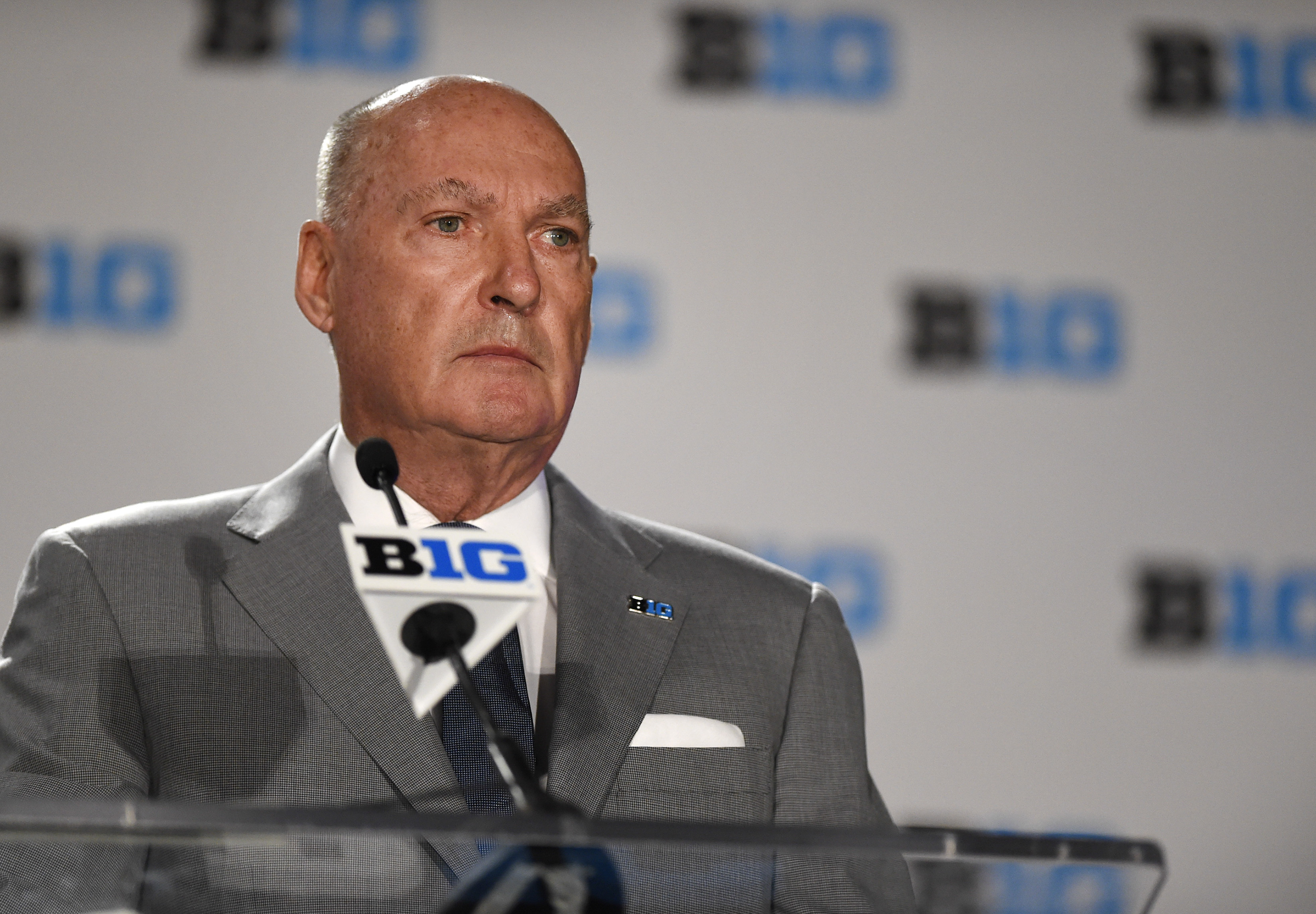In preparation for expanded sports betting in the US and in NCAA college football more specifically, Big Ten Commissioner Jim Delany said that coaches need to start making injury reports available to the public — in part to appease gamblers.

Keeping Injuries Hush-Hush
Many college football coaches avoid releasing injury information for privacy reasons, a nice gesture to the players. But doing so makes it hard to handicap games when a star player’s injury status is unknown.
Iowa coach Kirk Ferentz, the longest tenured head coach in college football entering his 20th season on the Kinnick Stadium sidelines, has been one of the most notorious offenders.
Ferentz, whose name is still often mispronounced by sports broadcasters after all these years (it rhymes with “parents”), has a long history of avoiding questions from the media about the status of an injured player. In most cases, fans are forced to wait until kickoff before getting an answer.
Delany, the conference’s commissioner since 1989, may decide to force Ferentz and his other coaches to start making injury statuses available to the public.
“Whether that comes out of an injury or whether it comes out of eligibility or comes out of some transgression of one kind or another, I think we need to do that,” Delany said. “I think we need to do that nationally. And I think the reason we need to do that is probably with the exception of the home field, the availability of personnel is critical to people who are interested in gambling legally or illegally.”
Ferentz, who was more concerned with his starting defensive tackle (Brady Reiff) recently getting arrested for drunkenly mistaking a cop car for an Uber driver, didn’t address the injury status issue. Minnesota coach PJ Fleck, on the other hand, said he agrees with the commissioner.
“I don’t need to know why, whether it’s a suspension, whether it’s an injury, whether it’s a knee, whether it’s grades, whether it’s disciplines — I don’t need to know all that. But I’m a huge advocate. I’d love to be able to see who is going to be able to play and not play,” Fleck, entering his second year with the Gophers, told the media.
Delany, who admits he doesn’t fully support the recent US Supreme Court decision to overturn the Professional and Amateur Sports Protection Act of 1992 (PASPA) that previously made it illegal to gamble on sports outside of four protected states, said forcing coaches to release injury reports is something he “should have done before.”
Looking Out for Gamblers
CBS Sports journalist Dennis Dodd first reported in early July that the Big Ten was considering the idea of a required public injury report. The driving force for the change, according to CBS Sports, is the Supreme Court’s recent ruling.
At media day, Delany said that “when players are unavailable,” gamblers should have access to this information so they can make informed wagers.
In year’s past, releasing injury reports has been at the discretion of each coach. In many cases, finding out an injured player’s availability for an upcoming game has been a difficult task. With expanded sports betting throughout the US, Delany says coaches should be required to provide injury statuses for the gamblers.


